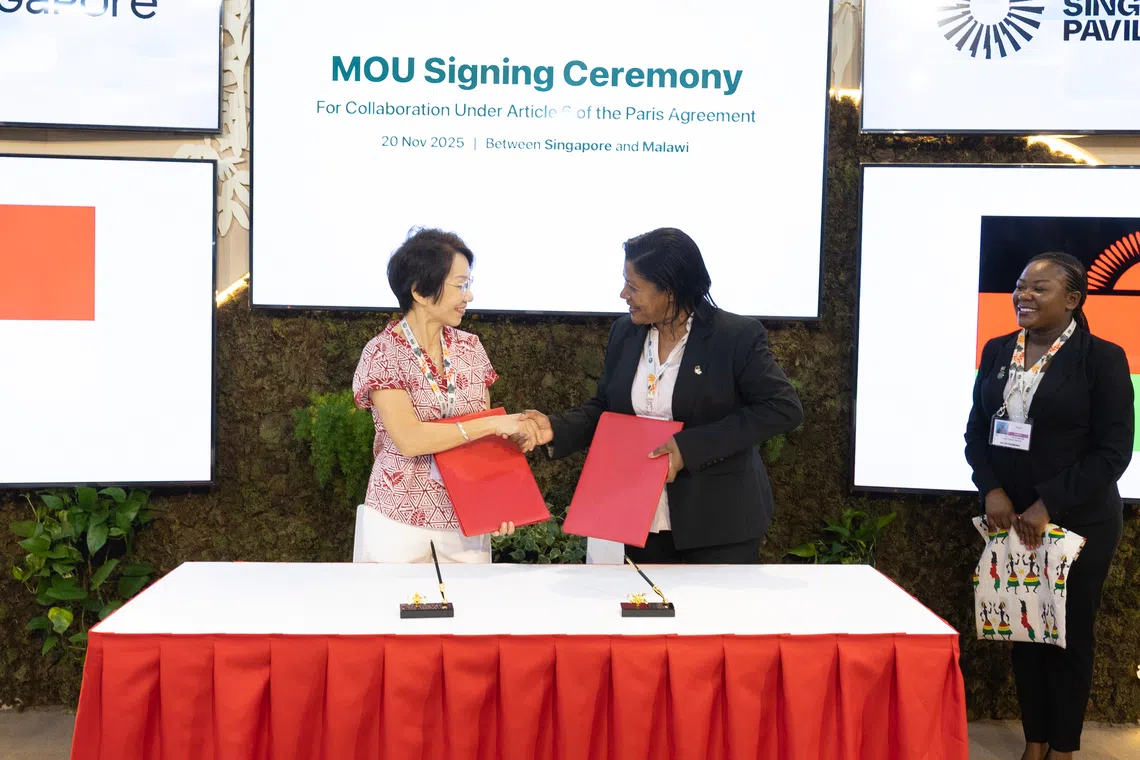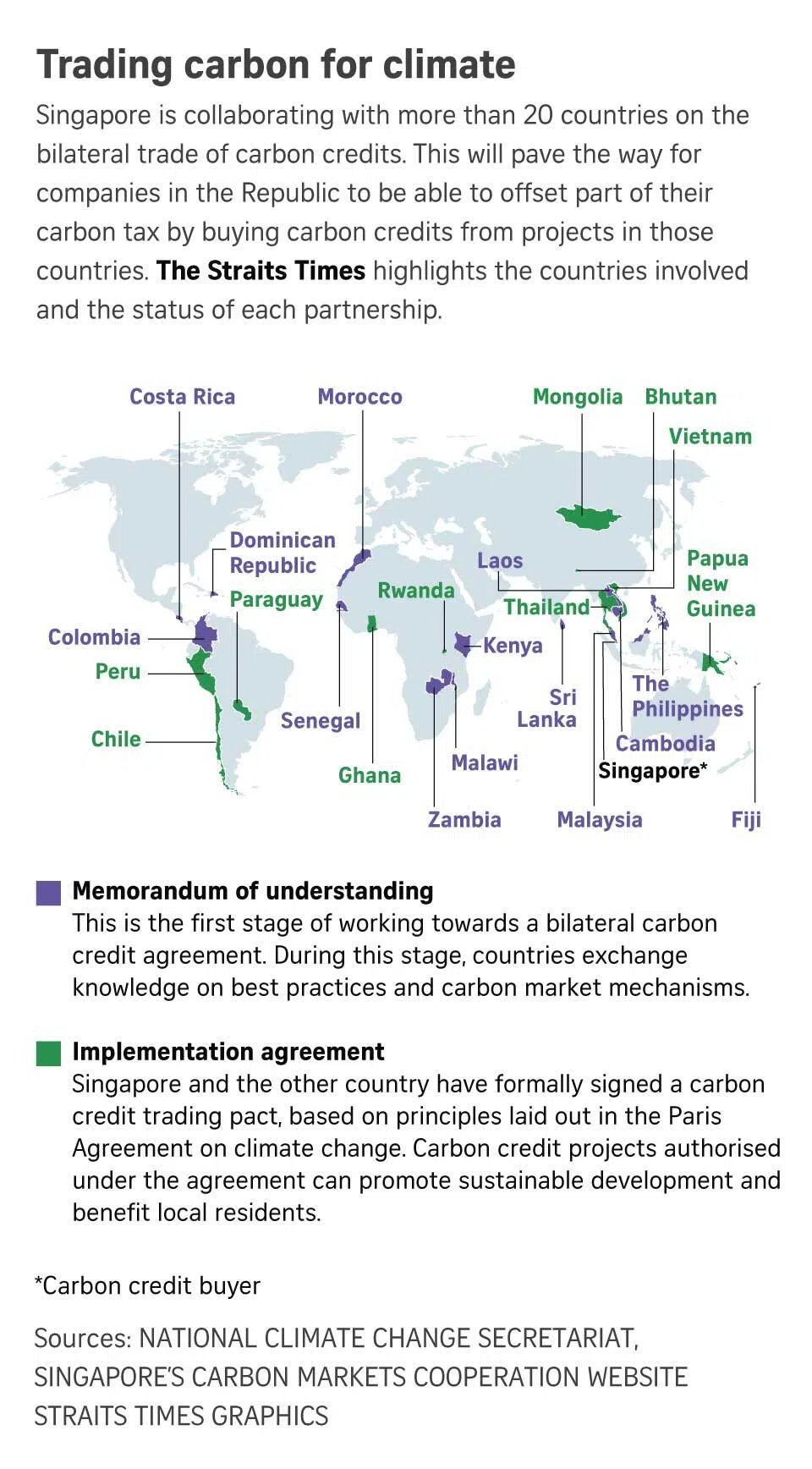COP30: Malawi, Singapore to collaborate on carbon credits
Sign up now: Get ST's newsletters delivered to your inbox

The memorandum was signed on Nov 20 between Minister for Sustainability and the Environment Grace Fu (left) and Malawi’s Minister of Natural Resources, Energy and Mining Jean Mathanga.
PHOTO: COP30 SINGAPORE PAVILION
BELEM, Brazil – Singapore and Malawi have inked an agreement to explore carbon trading
Both countries will now work towards an implementation agreement
The memorandum of understanding was signed on Nov 20 between Minister for Sustainability and the Environment Grace Fu and Malawi’s Minister of Natural Resources, Energy and Mining Jean Mathanga at the Singapore Pavilion of UN climate change summit COP30 in Brazil’s Belem.
It will facilitate the exchange of best practices and knowledge on carbon credit mechanisms, as well as the identification of mutually beneficial carbon credit projects that will support both countries in achieving their climate targets, Singapore’s Ministry of Trade and Industry said.
Once the memorandum advances to an implementation agreement, the Singapore Government will be able to purchase carbon credits to meet its climate goals under the Paris Agreement, the international treaty signed by nearly 200 countries to limit global warming.
Carbon tax-liable firms in Singapore will also be able to buy carbon credits from projects in Malawi to offset up to 5 per cent of their taxable emissions.
For Malawi, the development of carbon projects will help fund sustainable projects.
Dr Mathanga told attendees from Singapore and Malawi that the African nation, which is well endowed with natural resources, has been grappling with climate impacts that have ranged from erratic rainfall and prolonged dry spells, to droughts, floods and extreme heat events.
She added: “Yet within these challenges lies enormous potential in renewable energy, sustainable forestry, climate-smart agriculture and other mitigation opportunities. To fully harness this potential, Malawi requires investment, advanced technology and technical expertise.”
She commended Singapore for its global leadership in innovation, green finance, carbon markets and urban sustainability.
Malawi had expressed interest in selling credits to Singapore, which led to discussions at COP29 in the Azerbaijan city of Baku and virtual meetings, where the countries identified mutual areas of interest.
Dr Mathanga said: “Our assessments indicate significant mitigation opportunities in the industrial processes and product use sector, waste management, agriculture and other land use, as well as within the energy and transport sectors.”
Ms Fu, who is also Minister-in-charge of Trade Relations, said the collaboration comes at a critical juncture for global climate action, where the need for an urgent, collective response to the climate crisis is evident amid geopolitical tensions.
She added: “I hope that our cooperation will demonstrate how high-quality carbon credits can credibly raise global climate ambition, and bring about tangible benefits for local communities, such as environmental protection, improved access to energy, water and food security, and the creation of good jobs.

“These are especially important for countries like Singapore and Malawi, who, while geographically far apart, are both vulnerable to the effects of climate change.”
As an alternative-energy disadvantaged nation, Singapore has limited options to decarbonise on its own. Buying carbon credits generated by emissions-cutting measures elsewhere can help it to offset its carbon footprint.
Singapore has implementation agreements with 10 countries – Bhutan, Chile, Ghana, Mongolia, Papua New Guinea, Paraguay, Peru, Rwanda, Thailand and Vietnam – while discussions on carbon trading are ongoing with more than 10 other nations.



